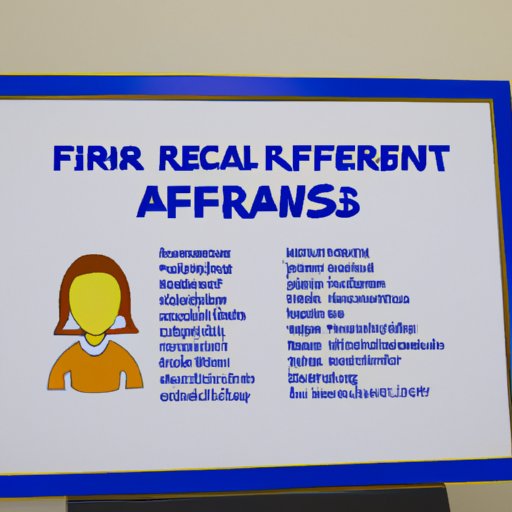Introduction
A financial planner is someone who helps you create a plan for managing your money. They work with individuals and businesses to develop strategies for reaching short-term and long-term financial goals. It’s important to find a good financial planner in order to ensure that your hard-earned money is being managed responsibly and wisely.
Ask for Referrals from Friends and Family
The best place to start looking for a financial planner is with friends and family. Word-of-mouth referrals are often the most reliable way to find someone who is trustworthy and knowledgeable. Ask around to see if anyone has had a positive experience with a financial planner that they would recommend.
When seeking referrals, ask questions such as: “What did you like about working with them?”; “Did they meet your expectations?”; and “Would you recommend them to others?” This will help you get an idea of the quality of service provided by the potential planner.
Research Potential Planners’ Credentials
Once you’ve identified a few potential planners, it’s important to research their credentials. Look for information about their education, experience, and specialty areas. Make sure they have the necessary qualifications to provide you with sound advice.
In addition, look for financial planners who are registered with regulatory bodies such as the Securities and Exchange Commission (SEC) or state regulators. These organizations require financial advisors to register and adhere to certain standards of conduct.
Check for Professional Certifications
Many financial planners hold professional certifications that demonstrate their expertise. The most widely recognized certification is the Certified Financial Planner (CFP). CFPs must pass a comprehensive exam and they are required to uphold a strict code of ethics. Working with a certified financial planner can give you peace of mind knowing that your money is in the hands of someone who is highly qualified.
Other certifications to look for include Chartered Financial Analyst (CFA), Chartered Investment Manager (CIM), and Chartered Retirement Planning Counselor (CRPC). Each of these designations requires its holders to adhere to certain standards and complete continuing education courses.
Read Reviews and Testimonials
One of the best ways to gauge the quality of a financial planner is to read reviews and testimonials from current and past clients. Look for reviews on websites such as Yelp and Google, and check the planner’s website and social media accounts for client feedback. Reading what other people have to say about the planner can help you determine whether or not they’re the right fit for you.
Consider Specialty Areas
Financial planners specialize in different areas, so it’s important to consider what type of services you need. Common areas of specialization include retirement planning, estate planning, tax planning, and investment management. If you have specific needs, try to find a planner who specializes in that area.
Working with someone who specializes in your particular area of interest can be beneficial. They will be more familiar with the ins and outs of that area, which can save you time and money.
Have an Initial Meeting
Before you decide to work with a financial planner, it’s important to have an initial meeting. During this meeting, the planner should explain their process and answer any questions you may have. They should also provide examples of their past work and discuss how they can help you reach your financial goals.
It’s important to ask questions during the meeting in order to assess the planner’s knowledge and professionalism. Questions to ask include: “How do you charge for your services?”; “What is your experience in this area?”; and “What is your approach to financial planning?”
Conclusion
Finding a good financial planner is essential for managing your finances effectively. It’s important to do your research and ask the right questions when selecting a planner. To make sure you’re making the best decision, ask for referrals from friends and family, research potential planners’ credentials, check for professional certifications, read reviews and testimonials, consider specialty areas, and have an initial meeting. Following these tips will help you find a financial planner who is right for you.
(Note: Is this article not meeting your expectations? Do you have knowledge or insights to share? Unlock new opportunities and expand your reach by joining our authors team. Click Registration to join us and share your expertise with our readers.)
